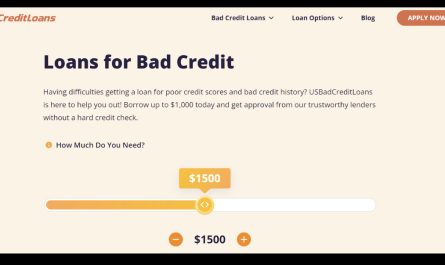Personal loan’s unsecured nature is one of the major points that sets it apart from its alternatives such as gold loan and loan against property, which require an asset as collateral. The absence of collateral offers makes it processing faster, however, it also increases the credit risk for lenders. To mitigate this risk, banks and NBFCs use multiple factors as part of their risk-based pricing method for fixing personal loan rates for their applicants. Here, let us discuss a few major factors in detail:
Credit Score
Whenever you apply for a personal loan, banks and NBFCs pull your credit report from credit bureaus to assess your creditworthiness. They tend to approve personal loan applications of those having their credit scores at least at 750 because such applicants tend to practice greater financial discipline. Therefore, approving loans of such applicants poses lower risk for personal loan lenders. The reduced risk further encourages banks and NBFCs to offer such applicants lower interest rates and pre-approved offers. Those with lower credit score, on the hand, either fail to get the loan or get it at interest rates higher than usual. However, one can improve their credit scores by following healthy credit practices like paying their loan EMIs or credit card bills on time, avoiding multiple loan or credit card applications within a short period, etc.
Employment Profile
Many banks and NBFCs offer personal loan rates as per their applicants’ employment profiles. They usually fix lower personal loan interest rates for their salaried loan applicants due to their higher income certainty as compared to self-employed applicants. Among salaried applicants, those having government jobs or are employed in public entities, MNCs and other reputed companies have higher chances of availing personal loans than those working in start-ups and other organizations that are not part of the bank’s approved list of companies. Similarly, among self-employed applicants, professionals like chartered accountants, doctors or architects have higher probability of availing personal loans at lower interest rates than other self-employed non-professionals.
Monthly Income
Banks and NBFCs also factor in their salaried applicants’ monthly income when fixing personal loan rates for them. They usually prefer sanctioning personal loans to applicants having higher incomes. This is because they associate higher income with higher loan repayment capacity, which reduces the credit risk for lenders and consequently allows them to offer lower interest rates to such personal loan applicants.
When assessing an applicant’s loan repayment capacity, lenders also evaluate how much portion of the applicant’s net monthly income goes into paying their monthly debt obligations using EMI/NMI ratio. They usually prefer approving loan applications of those whose EMI/NMI ratio is within 50-55% of their net monthly income. Those who don’t what EMI/NMI ratio is, it is a calculation method that banks and NBFCs use to ascertain an individual’s loan repayment capacity. It expresses in percentage how much portion of an applicant’s net monthly income goes into paying his monthly debt obligations, which also includes the EMI of the proposed loan. Those having their EMI/NMI ratios above 55% might find it hard to get loan approval. To know how you can reduce your EMI/NMI ratio, read an article about it on Finshastra – a Hindi blogging website where everything related to personal finance is simplified. You can also follow personal finance sections under various news websites to stay abreast with the latest news and gain knowledge from industry experts’ opinions.
Relationship with Banks and NBFCs
There are many banks and NBFCs that offer concessional interest rates on personal loans to their existing customers. Therefore, when shopping for personal loans, one should first approach the banks or NBFCs with whom they already have deposit and/or credit (loans and credit cards) accounts. The interest rates and other benefits offered/quoted by such lenders can later on can be used as benchmark to compare by personal loan offers extended by other banks and NBFCs and avail the best offer as per their eligibility.


